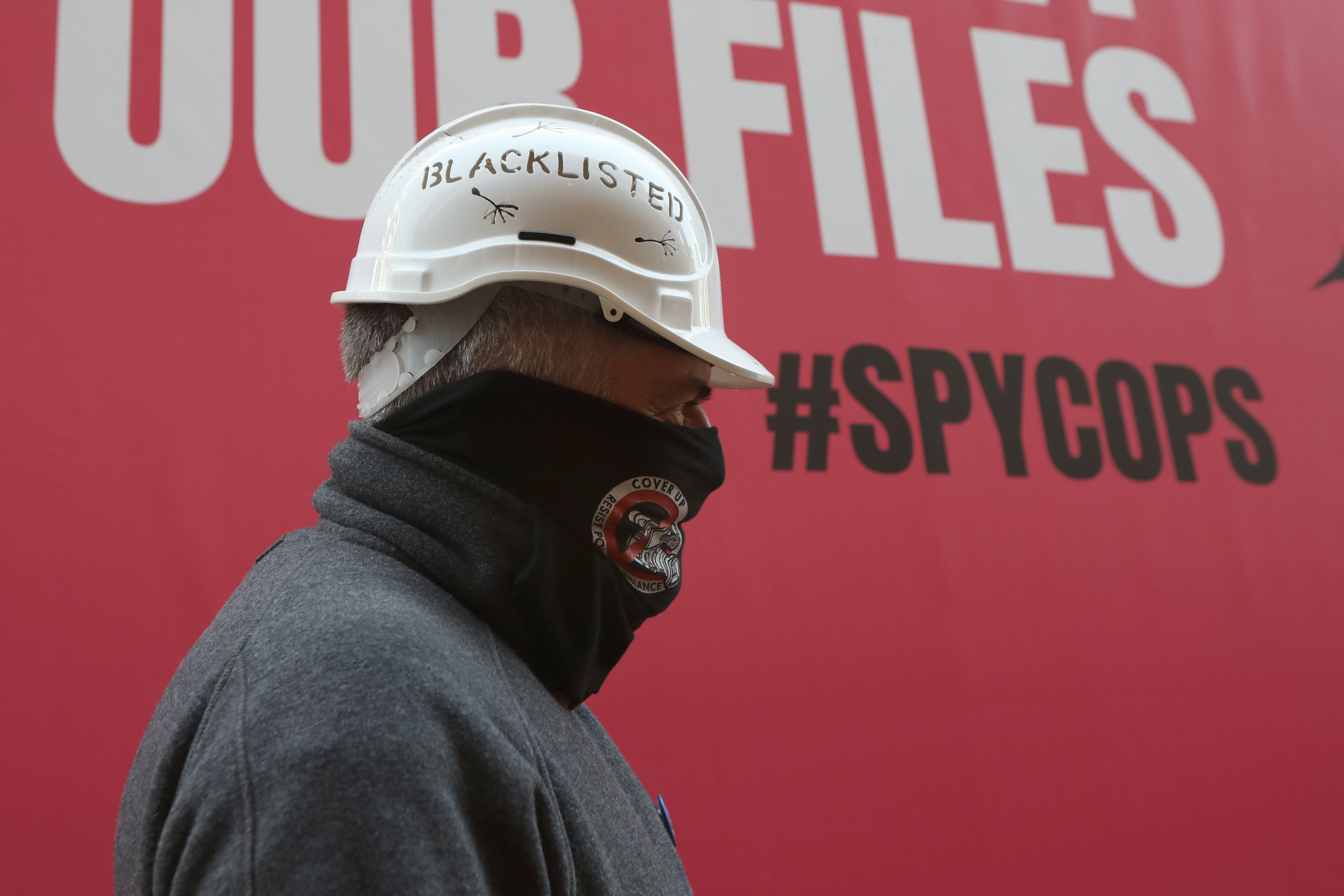Secret police unit did little to prevent public unrest in 14 years, inquiry told
Inquiry was set up in 2015 after a public outcry over conduct in undercover policing.

Your support helps us to tell the story
From reproductive rights to climate change to Big Tech, The Independent is on the ground when the story is developing. Whether it's investigating the financials of Elon Musk's pro-Trump PAC or producing our latest documentary, 'The A Word', which shines a light on the American women fighting for reproductive rights, we know how important it is to parse out the facts from the messaging.
At such a critical moment in US history, we need reporters on the ground. Your donation allows us to keep sending journalists to speak to both sides of the story.
The Independent is trusted by Americans across the entire political spectrum. And unlike many other quality news outlets, we choose not to lock Americans out of our reporting and analysis with paywalls. We believe quality journalism should be available to everyone, paid for by those who can afford it.
Your support makes all the difference.A secret Metropolitan Police unit set up to combat public disorder did little to stop unrest in the first 14 years of its existence, an inquiry has heard.
David Barr KC told the Undercover Policing Inquiry (UCPI) that the quality of the intelligence gathered by officers from the Special Demonstration Squad (SDS) from 1968 to 1982 was not justified in terms of the level of intrusion suffered by members of the public.
Giving his closing speech for the first part of the inquiry, referred to as Tranche One, Mr Barr said: “It is hard to identify a single instance in which SDS intelligence averted a public order calamity in the Tranche One era.
“Without the SDS the police would still have had all their other sources available to them.”
The UCPI was set up in 2015 after a public outcry over conduct in undercover policing including women being deceived into sexual relationships, officers using the names of dead children without consent, and trade union activists being blacklisted.
Closing speeches are being made this week in the first part of the inquiry, looking at the unit between 1968 and 1982.
The level of intrusion into people’s lives arising from SDS operations, particularly once long-term deployments became the norm, was very considerable
Future stages will look at time periods up until 2007, with the inquiry currently due to finish in 2026.
On Monday, Mr Barr, who is counsel to the inquiry, said that sexual relationships between undercover officers from the unit and women who were not aware of their true identity were “not uncommon” from the mid 1970s onwards.
In Tranche One, at least five undercover officers were involved in relationships with women, including one who got married and had a child.
Another, who was deployed to a university campus, was a known womaniser and described by colleagues as a “carnivore”.
Mr Barr said that a number of groups that were infiltrated were “questionable” targets that did not pose a threat to public safety, including the anti-Apartheid movement, the Women’s Liberation Front and the Socialist Workers Party.
Officers went into the homes of activists without the legality being considered, and miscarriages of justice were caused when officers were charged with offences and did not reveal their true identity to the courts.
There is also evidence that information gathered by the SDS was later leaked by police colleagues and that led to trade union activists being blacklisted.
The intrusion resulting from the SDS’ operations was into very sensitive areas of people’s lives: their political lives, their financial affairs, their legal affairs, their families, their friendships and even, in some instances, their sex lives
Mr Barr said: “The level of intrusion into people’s lives arising from SDS operations, particularly once long-term deployments became the norm, was very considerable.
“Moreover, the intrusion resulting from the SDS’ operations was into very sensitive areas of people’s lives: their political lives, their financial affairs, their legal affairs, their families, their friendships and even, in some instances, their sex lives.”
He went on: “They were long-term and highly intrusive operations conducted continuously.
“In these circumstances, we submit that the need for and value of the public order intelligence provided by the SDS was not an adequate justification for the intrusion caused by the SDS model of long-term undercover policing in the Tranche 1 era.”
In a closing statement on behalf of the Metropolitan Police, Peter Skelton KC accepted that the relationships were “unacceptable and wrong”, and repeated apologies already made by the force.
He went on to tell the inquiry that the SDS obtained intelligence that could not have been gathered by other means, that was of value in public order policing.
Mr Skelton said: “It is simplistic to advance the point that it’s hard to identify a single instance in which the SDS intelligence averted a public order calamity in the Tranche One era.
“In fact, that there were few such calamities is itself evidence that the system to which the SDS contributed was working, demonstrations were policed effectively.”
Closing statements by interested parties in the inquiry will continue until Wednesday.
An interim report on the first part of the UCPI will be published at a later date.